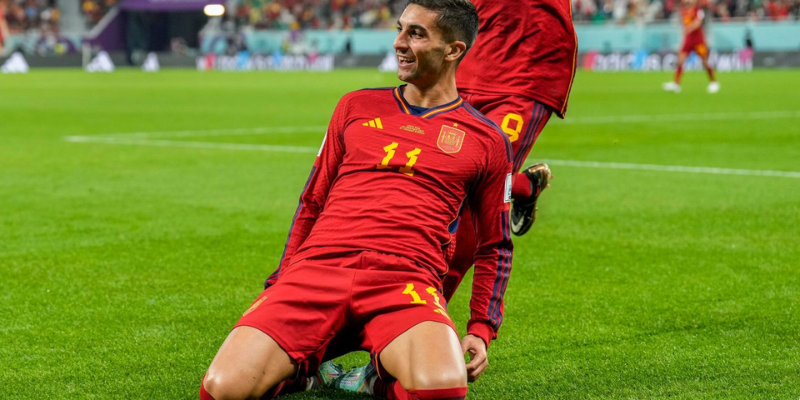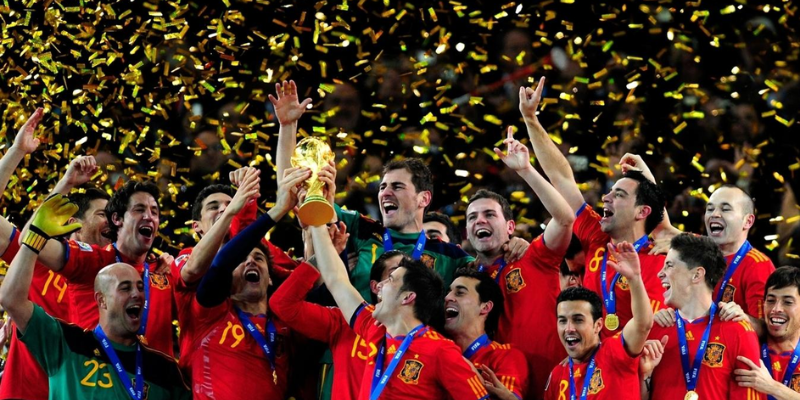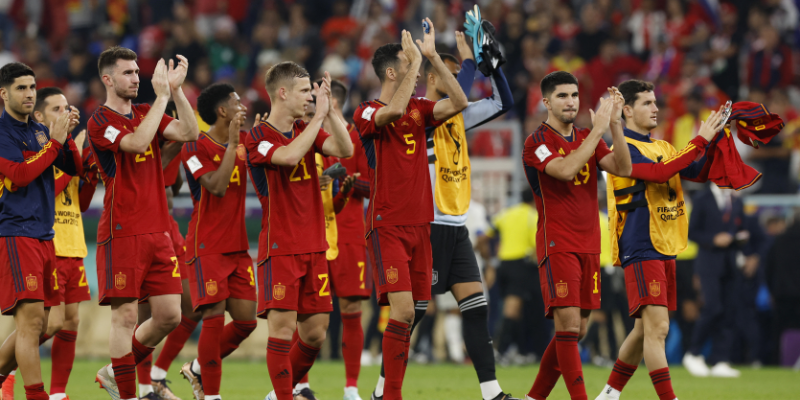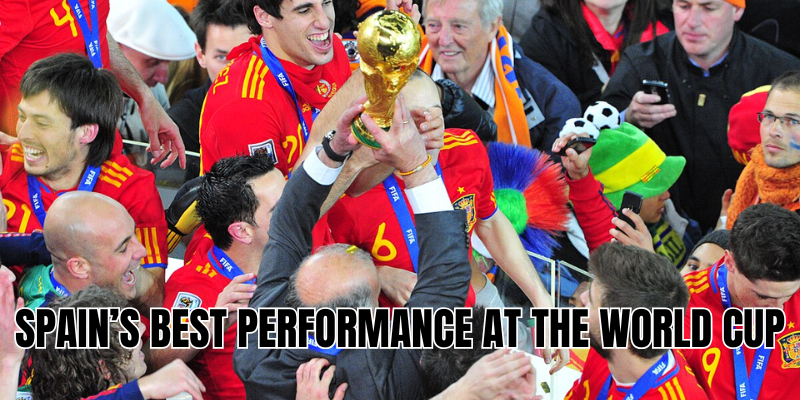When we ask “what is Spain’s best performance at the World Cup,” we’re not chasing a close second or historic fluke — we’re pointing straight at the moment when La Roja ascended to football’s summit. In this article, QuraGoal will walk you through Spain’s World Cup journey, highlight their shining moment, compare that feat to past high points, and explore why 2010 still stands head and shoulders above the rest.
The history before glory

To fully grasp why 2010 is so monumental, we need context. Spain’s early World Cup runs were uneven. Their first appearance was in 1934, where they reached the quarterfinals before losing to Italy in a replay. Over subsequent decades, Spanish football would produce incredible talent—but translating that into World Cup dominance remained elusive.
One of Spain’s most memorable pre-2010 runs came in 1950, when the tournament format was unconventional: instead of a straight knockout bracket, the final round was a round-robin stage. Spain made it to that final phase and ultimately finished fourth place — their best finish prior to 2010. That 1950 result remained a benchmark of Spanish national pride for six decades.
But Spain’s performances in other editions were patchy:
- In tournaments like 1986, 1994, or 2002, they reached the quarterfinals but couldn’t break past that barrier
- Other times they stumbled in group stages, even suffering early exits
- The team had world-class individuals but lacked consistency at the highest level
So entering 2010, many viewed Spain as perennial contenders—technically superb, tactically intelligent—but always under the shadow of “nearly there.”
The 2010 World Cup: Spain’s crowning moment
There’s no debate: Spain’s best performance at the World Cup is the championship run in 2010. It’s the only time Spain reached a final (and won it). They turned promise into reality and changed footballing narratives in the process.
Road to the trophy
Spain entered the tournament as reigning European champions (2008), and expectations were high. They lost their opening match 1–0 against Switzerland, but that defeat served as a wake-up call rather than a derailment.
From there:
- They won their group
- In the knockout phases, they won every match 1–0 — tight, disciplined, unflinching
- They defeated Portugal, Paraguay, Germany, and then the Netherlands in the final
Each win underscored their philosophy: possession, patience, a break.
The final: Iniesta’s magic
In the final versus the Netherlands, it stayed scoreless after 90 minutes. Extra time brought tension, yellow cards flying, nerves on edge. Then, in the 116th minute, Andrés Iniesta struck the decisive blow — a composed finish that launched Spain into history.
The 1–0 win etched Spain’s name on the World Cup Trophy. Iker Casillas earned the Golden Glove, Iniesta was man of the match, and Spain became the first European country to win a World Cup outside Europe.
That final and that goal embody why 2010 remains their zenith.
Why 2010 outshines 1950 (and all others)

You might wonder: “Isn’t fourth place in 1950 impressive given the era?” Yes, it is. Spain’s 1950 campaign deserves respect, especially considering postwar challenges and tournament structure quirks. But several factors elevate 2010 beyond all others:
- It’s a tournament win
- No matter how respectable a fourth place is, nothing compares to lifting the trophy and being crowned world champions.
Modern competitive depth
- In 2010, there were more teams, more tactical sophistication, and dee. Tactical identity fully realized
- Spain in 2010 didn’t just win—they did so in a style that captivated purists. Possession dominance, pressing, fluid passing—all aligned in a cohesive system.
- Heroic narratives and legacy
- Iniesta’s final goal, Casillas’ leadership, Xavi and Busquets controlling tempo — these legends emerged through that victory. It’s not just about results; it’s about embedding the win into national football lore.
- No repeated peaks
- Since 2010, Spain hasn’t replicated that level at a World Cup. That singular achievement remains unmatched in their history.
Spain’s best performances — ranking the top 5
To give some perspective, here are Spain’s top World Cup results in modern memory, ranked:
| Rank | Year | Outcome | Notes |
| 1 | 2010 | Champions | Their only World Cup title — clearly Spain’s best performance at the World Cup |
| 2 | 1950 | Fourth place | Best pre-2010 showing, in a round-robin final group system |
| 3 | 1934 | Quarterfinals | Their debut tournament — brave showing |
| 4 | 1986 / 1994 / 2002 | Quarterfinals | Several editions ended at this stage |
| 5 | 2006 / 2018 | Round of 16 | Respectable but modest in ambition |
Notably, Spain has only reached the semi-finals twice (1950 and 2010), and only once made the final.
Key stats from Spain’s World Cup journey
- Spain has participated in 16 out of 22 World Cups to date.
- Their all-time World Cup record: 67 matches, 108 goals scored, 75 conceded.
- No Spanish player has ever won the World Cup Golden Boot, but David Villa won Silver Boot in 2010 with 5 goals.
- Long unbeaten runs and dominant possession stats marked their 2010 campaign.
These numbers underline not just that they achieved the top prize — but how convincingly they did so at times.
What happened after 2010? A look at the decline and hopes for revival

After 2010, things got rocky. In 2014, Spain flopped disastrously, exiting in the group stage. In 2018 and 2022, they showed flashes but never reached a final again. The golden generation aged. New systems struggled to recapture the fluid dominance of their peak.
Yet hope endures. Youthful talent—Gavi, Pedri, Lamine Yamal—and a renewed tactical framework suggest Spain might again compete at the very top in future World Cups. But until then, 2010 remains the unchallenged high watermark.
Final Thoughts
Spain’s best performance at the World Cup was never in doubt — it was the 2010 triumph. That singular tournament victory crowns their efforts, eclipses earlier highs, and stands as a testament to a generation and a philosophy.
QuraGoal hopes this journey through Spain’s World Cup history gives you clarity, perspective, and that spark for debate among fans. If you want player-by-player breakdowns, match-by-match recaps, or comparisons with other nations’ best World Cup runs, just let us know.




